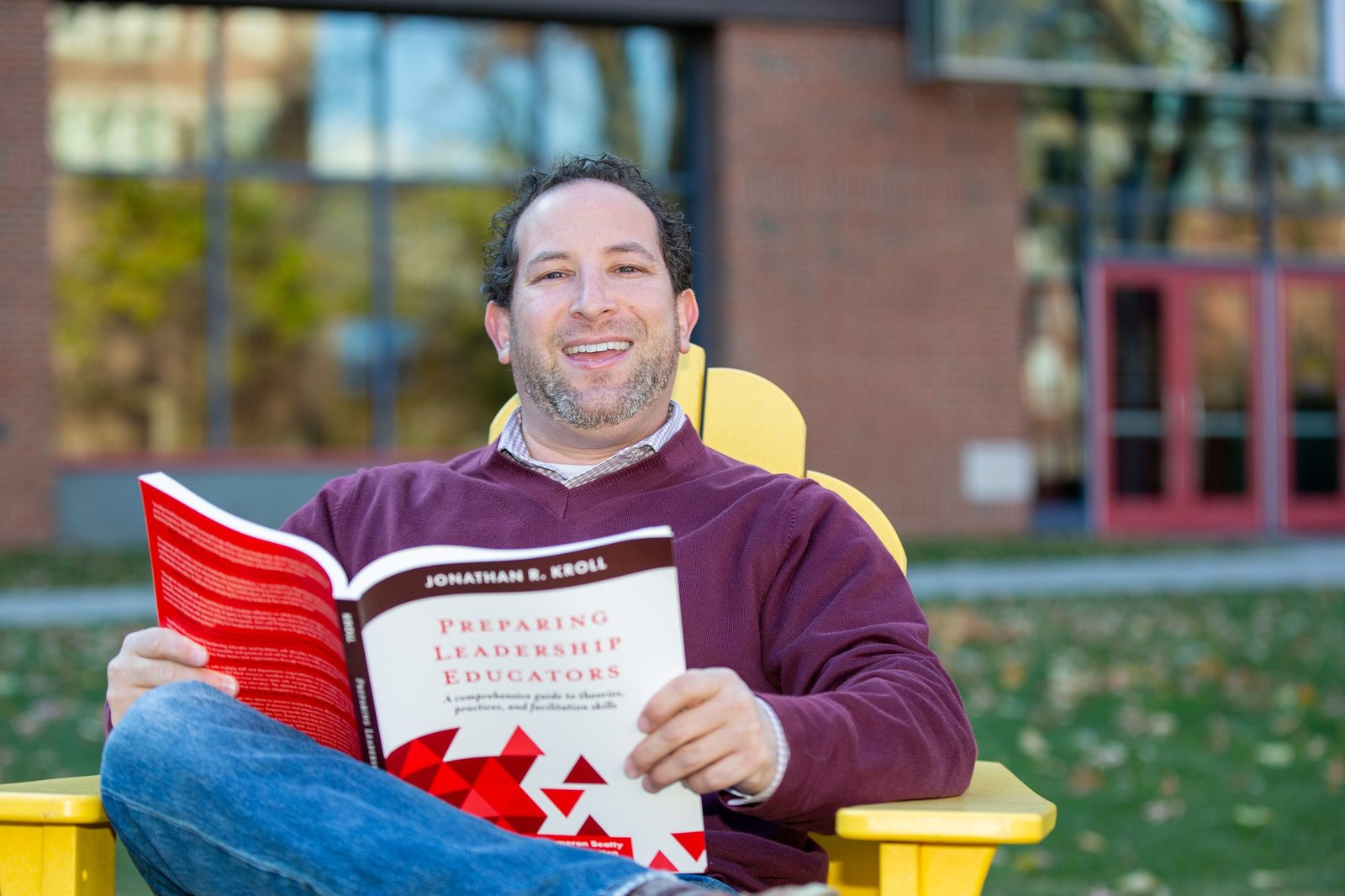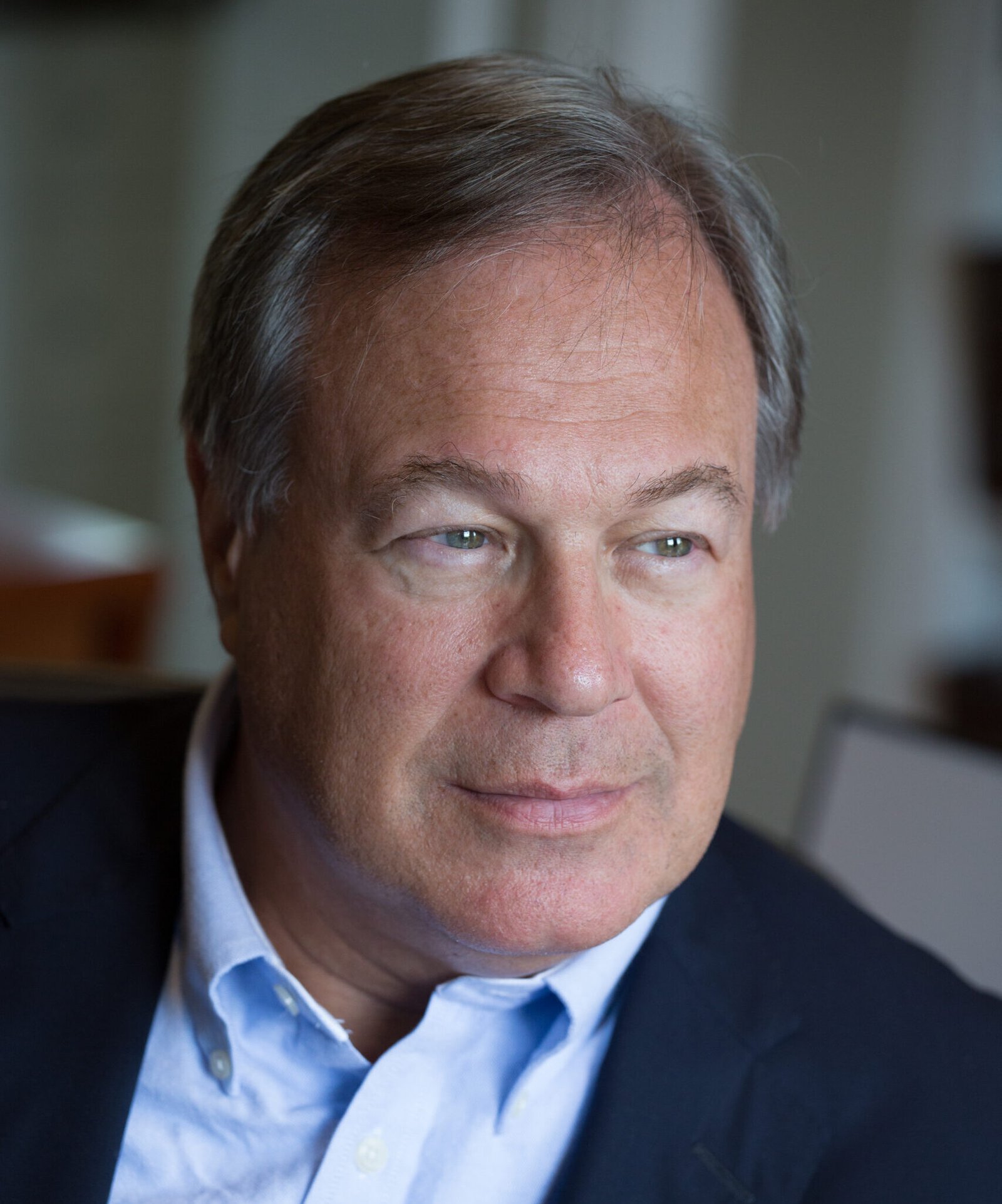I recently went one on one with Jonathan Kroll. Jonathan is is an Assistant Teaching Professor and Program Director for the Professional Leadership Studies program at the University of Rhode Island and is the author of the new book Preparing Leadership Educators.
Adam: Thanks again for taking the time to share your advice. First things first, though, I am sure readers would love to learn more about you. How did you get here? What experiences, failures, setbacks, or challenges have been most instrumental to your growth?
Jonathan: Adam – Thank you for beginning here! I firmly believe that in order to be effective as leaders, we must purposefully engage in identity exploration and development. By examining, questioning, reflecting upon, and processing who we are—our experiences, successes, failures, challenges, beliefs—all of it—we are able to cultivate deeper levels of authenticity, foster enhanced levels of connectivity, and model a healthy leadership habit. This is the core practice and process of self-authorship—a critical component of effective leaders. And this is why: When we purposefully engage in identity exploration and the pursuit of a self-authored identity, we are better positioned to know ourselves and conduct our lives with authenticity. We yearn for leaders who know themselves—their strengths, limitations, and aspirations—and display that—act from a place of authenticity.
So, who am I? I am an American who was raised in central New Jersey. I am currently living in Boston, Massachusetts—a city I have considered “home” for the past 15 years (since 2008). Professionally I am the Program Director and Assistant Teaching Professor in the Professional Leadership Studies program at the University of Rhode Island. I also founded a nonprofit leadership organization that focuses on trainer and facilitator preparation. I believe this is a critical, yet often overlooked space in the leadership landscape that needs serious attention. Often, those who are charged with and responsible for the training and development of others are ill-prepared to serve in that capacity. This means that training and development is more ineffective than it should be.
I can trace this deep interest in leadership trainer and facilitator development to 2005, when I was an independent English language volunteer in Nicaragua. In my mind, these six months were supposed to be light and breezy—plenty of time at the beach, exploring a new and different place, reading interesting literature, and teaching a little bit of English. It ended up being heavy on the teaching and light on the “light and breezy.” I also started facilitating leadership trainings. I had an interest and skill set—albeit limited—that matched the desire of young Nicaraguans. After this six-month stint ended, I returned to Nicaragua every year to continue facilitating leadership trainings. Then, 2015, after earning my doctorate, I wanted to increase the impact of these programs and thought the nonprofit structure was the best fit. In 2016, the organization launched and developed our flagship program we called the Leadership Trainer Certification Program. It was structured to provide nonprofit leaders with the knowledge and skills to facilitate more impactful training experiences for their constituents. It was wildly successful and as we were gearing up for more programming, social and political unrest in Nicaragua made it unsafe to continue that work there. I returned to the USA (Boston) and restructured the Leadership Trainer Certification Program for nonprofit leaders, university administrators, and corporate trainers. It was very clear that even in the Global North, where leadership learning and exploration is plentiful, those who facilitate the trainings are often not equipped to be as effective as they would like.
Although I would love to still be doing this work in Nicaragua, this experience—and all the challenges since then—have been instrumental to my growth and expanding my mindset. I now see that I can have a greater impact on the leadership landscape by focusing exclusively on trainer and facilitator preparation.
Adam: What do you hope readers take away from your new book?
Jonathan: Overall, I hope readers recognize that training and development—more specifically the poor preparation of those who facilitate the training and development of others is a serious issue. I often ask, “How can we expect the next generations of leaders to navigate the challenges we will inevitably face in the months, years, and decades ahead, if those who are responsible for their leadership training and development today are ill-prepared?” They won’t.
The global challenges we face are daunting: the climate crises, health threats, water and food shortage, housing insecurity, domestic abuse, sex trafficking, social inequality, structural racism, corruption, and more. Current leadership development programs are proving to be inadequate to meet this moment. Although we invest billions of dollars into training and development annually, these experiences are not producing the leadership outcomes they espouse. Research indicates that corporate trainers receive little to no training—even with basic facilitation methods. In the nonprofit and higher education sectors, where resources are limited, the data points to the same condition. Generally, those who identify as leadership trainers are ill-prepared to facilitate leadership training and development. This book, Preparing Leadership Educators, was written to transform the leadership landscape by better enabling trainers and facilitators to be more effective and impactful in their practice. I believe I have made dozens and dozens of leadership theories and practices accessible to diverse readers. More, I focus on how to effectively facilitate training experiences that leverage experiential learning and reflective dialogue—so we can move away from boring lecture-style slide deck presentations-as-trainings. Included in that is our ‘Training Story’ methodology and best-practices for facilitation. The best part of the book, though, is that I include explicit instructions and my go-to reflective dialogue questions for every leadership theory and practice—more than 45 of them. So, if you are facilitating a training or workshop on communication or emotional intelligence or self-efficacy (as leadership practices) or adaptive leadership, servant or transformational leadership (as theories) you have the instructions for how to facilitate an experiential activity to bring that theme to life—with the reflective dialogue questions to empower your participants to internalize their learning. I am so proud that it has become such a practical resource for leaders and leadership trainers.
Adam: What do you believe are the keys to effective communication?
Jonathan: If we are going to be effective as leaders, most of us need to change the way we communicate. Often, we are closed in our communication approaches. We just relay information. We dictate. We tell. We rehearse and reload our rebuttals before listening to or understanding others. This is not a reciprocal process. We tend only to listen to ourselves and the recordings played on repeat in our minds. This manifests as dictating to others or talking politely. I suggest folks read Solving Tough Problems by Adam Kahane. He articulates that by dictating, we utilize an authoritarian, unilateral approach. This has unintended consequences because the messaging is not received well. Talking politely, although it sounds nice, is not a healthy leadership practice either. Here we say the things we think others want to hear—not what they need to hear. I also suggest people explore Otto Scharmer’s Fields of Conversations and Fields of Listening. Essentially, we need to move from “downloading” where we are rooted in our habits of judgment to “generative” forms of listening and communicating where the future can emerge through our collective works—because of how we engage, listen, and communicate with others.
Adam: What can anyone do to become a better communicator?
Jonathan: To become a better communicator, we need to become better listeners. Only when we can truly understand others, can we craft our messaging and lead our efforts in a way that has a high level of resonance with others. If we want to be better communicators, we need to focus on our own listening.
As a tactical communication skill, I suggest focusing on two things. When delivering a message, we ought to focus on what the receiver needs to know? In other words, we focus our energy on narrowing all the things we could share to just the essentials. We want to be brief. And, the messaging needs to be relevant to the receiver. This can only happen if we do the essential listening as I was just sharing. Too often, we share too much leaving too many questions and lack of confidence on how to proceed.
Adam: What do you believe are the defining qualities of an effective leader?
Jonathan: I’m not confident there is a universal list of ‘defining qualities’ of an effective leader. Leadership necessitates different qualities and characteristics from leaders depending on the context and situation. For example, leading a rescue operation out at sea necessitates different leadership qualities and characteristics than bringing a new product or service to market—or hosting a meeting…on any topic. What is most important is that leaders develop the leadership skills and capacities that will make them more effective in their context. With that being shared, I do believe all leaders need to focus on issues of character, trustworthiness, and integrity as defining qualities.
Adam: How can leaders and aspiring leaders take their leadership skills to the next level?
Jonathan: We each need to engage in an individual and personal process of understanding our leadership growth areas—and then doing something about it. Because our leadership skills can be developed, they ought to be. We need to individually, and our organizations need to create pathways for leadership development. And, as I shared before, we need to find those trainers and facilitators of our leadership development who are going to be effective in assisting us in accessing the leadership skill, internalizing our current practice compared to where we want it to be, and then applying our learning to practice so that we can have effective behavioral change around the leadership skills that need improvement.
Adam: What are your best tips applicable to emerging leaders and to seasoned leaders?
Jonathan: For emerging leaders, I suggest finding a mentor…making the ask for someone to serve as a mentor. This can be an incredibly rewarding and meaningful developmental experience. I also suggest conducting a deep dive into their leadership growth areas—and then doing something about it. Even if the organizational budget is limited, make the financial and time investment to focus on leadership development.
For seasoned leaders, I also suggest conducting a deep dive into their leadership growth areas—and then doing something about it. Leadership development is a life-long experience. It is also important to highlight that most people who enter into advanced leadership roles, regardless of if they are emerging or seasoned, are skilled for the role they are currently in…not necessarily the role they are advancing into. Generally, people are promoted into leadership roles because of their technical skills, and having strong technical skills doesn’t always translate into good leadership skills.
Adam: What is the single best piece of advice you have ever received?
Jonathan: A mentor and favorite faculty member of mine, the late Peter Magolda used to emphasize the importance of “making the strange, familiar…and the familiar, strange.” To me, this is about exploring, confronting, and engaging with the things that seem different, perplexing, and uncomfortable. There is much to learn and tremendous growth opportunities when we incorporate that into our leadership practice—making the strange, familiar And, we need to pursue discomfort—making the familiar, strange. We need to avoid settling and being comfortable. That is when we become lethargic and lackluster. We should constantly, consistently be pursuing opportunities and experiences that enable us to be courageous and vulnerable. This is not just about new opportunities and experiences. This is also about making our regular day-to-day experiences vibrant. How can we see and engage with the mundane with freshness?









